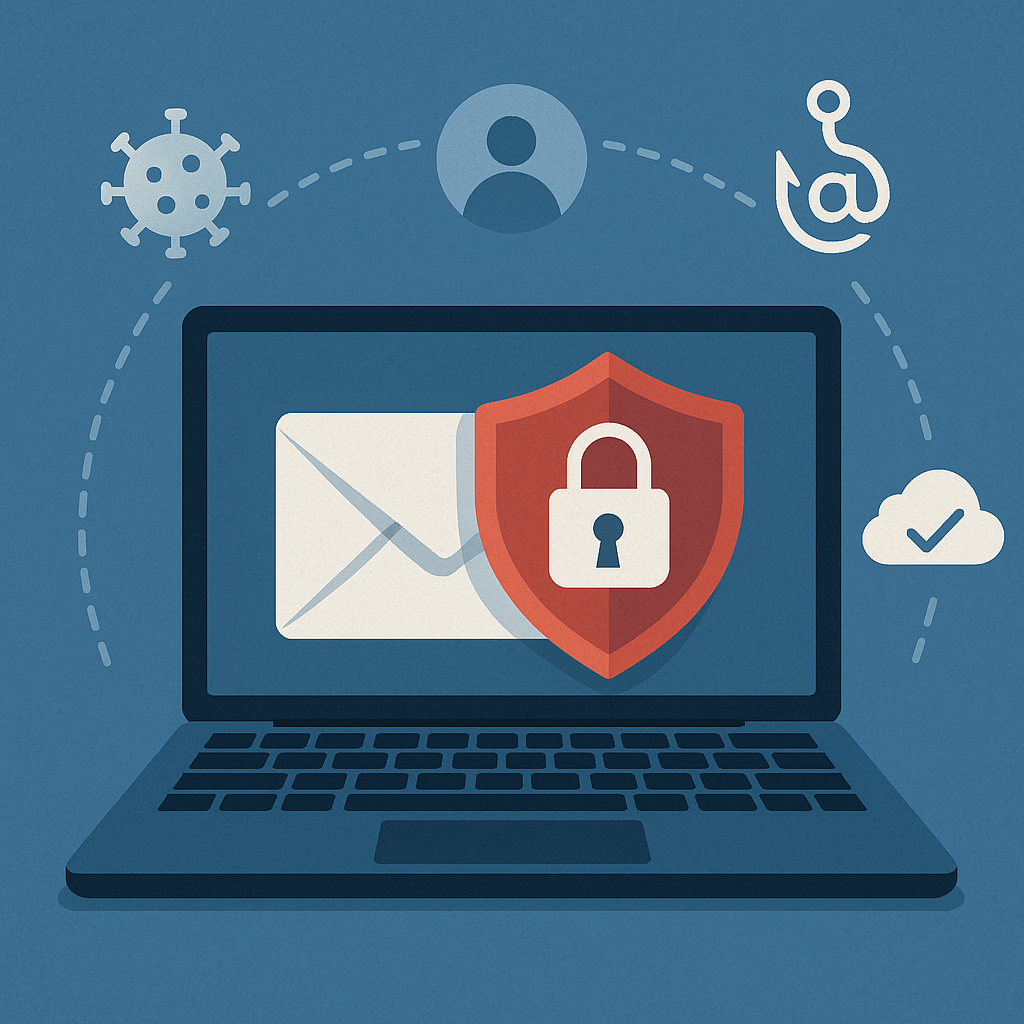The post-pandemic workplace has permanently reshaped how we communicate, collaborate, and protect information. With more remote work and cloud-based operations, email security is now more important—and more vulnerable—than ever. Traditional security approaches are no longer sufficient to combat today’s sophisticated threats.
Business Email Compromise (BEC) and phishing remain the most common methods of attack. But the sophistication of these scams has grown, with attackers using AI to craft personalized emails, impersonate executives, and even take over legitimate accounts. Without proper security in place, a single compromised email can lead to widespread data breaches or financial loss.
Modern email security starts with a zero-trust mindset. Every message, link, and attachment should be verified before trust is granted. Use AI-powered email filters that evaluate not just content, but metadata and behavior to detect suspicious activity.
Multi-factor authentication (MFA) is essential. Even if credentials are compromised, MFA prevents unauthorized access. Combine this with strong password policies and email session timeouts for added protection.
Implementing SPF, DKIM, and DMARC protocols ensures your domain can’t be spoofed. These tools verify that the sender is who they claim to be and prevent cybercriminals from impersonating your business.
End-to-end encryption protects sensitive communications from interception. Especially in industries like healthcare, finance, or legal, encryption is not just smart—it’s often legally required.
Finally, empower employees through training. Human error is the weakest link in any security system. Simulated phishing attacks, regular awareness sessions, and simple reporting tools can drastically reduce risk.
In the post-pandemic world, email remains essential. But without modern protection, it can become your biggest vulnerability.
If you are interested in learning more, schedule a call today.

